Episode 12: Tech Talent Today and Tomorrow
In this episode, host Anni chats with Julia Zavileyskaya, Chief People Officer at DataArt, about the biggest hiring trends, AI's role in recruitment, and what really keeps employees engaged. What's changing in tech hiring? Must-have skills for the future AI & data-driven HR—where's the balance? The truth about retention & company culture? Plus, Julia shares why AI shouldn't make hiring decisions. Tune in now! Subscribe & share!
Key Takeaways
✓ Historical Context: Tech hiring has evolved from prioritizing specific technical qualifications to valuing adaptability and continuous learning, with many companies focusing on years of experience rather than problem-solving capabilities and talent development potential.
✓ Current Landscape: Companies face a slower tech talent market where employee retention is driven by job security concerns. Modern recruitment balances AI implementation for productivity while maintaining human judgment. Experience-backed intuition remains valuable in talent assessment, with a shift from metrics-based diversity approaches toward values-based recruitment strategies.
✓ Anticipated Trends: Recruitment will become more specialized as talent markets grow selective. Future workplace skills include resilience, adaptability, critical reasoning, and problem-solving. While artificial intelligence transforms workplace productivity, human decision-making remains central to effective hiring, with transparency around compensation becoming increasingly important for talent retention and engagement.
Transcript
Anni Tabagua: Hi, and welcome back to a new episode of BizTech Forward. I'm your host, Anni, and today, we're talking about tech talent and hiring trends. It looks like companies are competing harder than ever to attract, develop, and retain top talent. But with remote work, what does it really take to build a strong, future-proof team? To discuss this, I'm joined by Julia Zavileyskaya, Chief People Officer at DataArt. Hi Julia, welcome to the show.
Julia Zavileyskaya: Thank you for having me here today.
Anni Tabagua: Julia is the Chief People Officer at DataArt. With over 20 years of experience and 20 years at the company, she's the partner and driving force behind DataArt's global human capital strategy, communications, and branding. Julia has launched and developed several R&D centers across multiple countries, bringing a wealth of cross-national experience.
I'm really happy to talk to you today, Julia. Welcome to the show. You know, I already mentioned that you bring so much of this cross-national experience. Before we even begin to talk about trends, I wanted to ask if there is a tiny little story you can share with our listeners about this international experience of yours and maybe some research or something you really like.
Julia Zavileyskaya: Thank you, Anni. Actually, a lot of people ask me often how it's possible to spend so many years at the same company because I'm here most over 20 years, and it's a huge part of my life. I often reply that I'm a real example of one of the values of DataArt: flexibility.
Because of that, I could change my roles in the same company. At some moment when we opened new offices, I was really interested in this activity, and luckily, I could spend a lot of time in different countries. I am originally from Saint Petersburg, but I spent a lot of time when we opened our offices in Ukraine. The first one was in Kherson, not in Kyiv. By the way, I spent several years in Argentina, and it was an absolutely amazing time when we traveled across Latin America. I spent several years in Malta, and now I'm in London. All this was possible because of one value of DataArt: flexibility. So, I really appreciate DataArt for being so flexible. I enjoy all this time.
Anni Tabagua: Wow. That's really cool. It sounds like it is the same company, but it's almost like you had a bunch of different jobs within the company.
Julia Zavileyskaya: Absolutely. That's the tricky thing about the company. That's why I could spend so many years in the same environment and social team here. Because for me, that's really important.
Anni Tabagua: Julia, so DataArt is a company with over 5000 people, and you are the Chief People Officer. So, a lot of your job has to do with communication, hiring, and monitoring all kinds of hiring trends. I want to start a bit big and ask you, based on what you are observing, what is happening in the tech talent scene right now, and what shifts are you seeing?
Julia Zavileyskaya: Thank you, Anni, for the question. I would like to emphasize that I am the leader of our team. But a lot of work is definitely done inside our team. We have many teams responsible for different parts of our operations, and recruitment is a huge team with more than 100 people across the globe. They're really great professionals. I would like to pay attention to the fact that it's not only me but my team colleagues who do a lot of work.
Regarding the shifts, from what I see, and I really worry about that, it's a shift to previous experience rather than problem-solving ability to gain new skills, knowledge, and so forth. I see a lot of clients who expect us to find and introduce them to people who have a particular number of years in a particular qualification or industry or are working with that particular platform. I think that it's a risky trend because platforms and technologies are always changing.
We really have to keep this ability to switch from one new area to another. It's a special muscle, which is really meaningful. I believe that our field is really about something new all the time. So I really hope that we stop paying so much attention to past experience and keep an eye on people's abilities, how they gain new knowledge and skills, and how they can be open-minded and navigate through all these new things that appear all the time.
Anni Tabagua: That's really interesting. So, if I got it right, do clients come with a specific job requirement in their head right now, and do they want somebody who matches exactly everything they used to have?
Julia Zavileyskaya: Absolutely. I'm really stuck when I see that somebody could be rejected because they don't have three years of experience and instead have only two and a half years of experience. That's the reason why somebody could be rejected and not go to the interview. I think it's kind of a disaster.
Anni Tabagua: And have you seen examples like this?
Julia Zavileyskaya: Absolutely. I see that as a huge risk because we have to think about future development, how to be flexible with all these new technologies, and how to switch from one technology to another. This trend really concerns me.
Anni Tabagua: Right, Julia. Also, is it mostly difficult to find the right candidate right now for clients? Or is it difficult to keep the candidate? How is the retention? What's happening?
Julia Zavileyskaya: In regards to retention, I see that right now is the slowest possible market ever. We have been growing significantly for almost forever. And we are not alone in this trend - many companies are also growing. Right now, it's a kind of stagnation, definitely with different disclaimers.
Right now, we see slow growth in IT markets and projects. So, there are fewer new opportunities for professionals. And sometimes, I think that some people stay at the same companies just because they mitigate the possible risks because of job security. It makes our work harder because we have to think about motivating these people to gain new knowledge and skills, to be satisfied being at the same company and not just because they want to be here.
Anni Tabagua: Julia, I'm wondering if colleagues mostly want to be motivated from the outside or sometimes come themselves and say, "I want to learn, teach me stuff."
Julia Zavileyskaya: There is a huge variety of different people, as usual. I think that the main thing here is to provide opportunities for everybody. If somebody doesn't want to learn, it's okay. This person could spend time without learning. But I think most people in IT are motivated to learn new skills because it's about something new.
A lot of people join IT because of its always-changing environment. So, from what I see, most of our colleagues want to know something new, learn something new, gain new skills, and change something. There is, as always, variety in this approach. But that's why we have a lot of learning opportunities. I saw that you have already talked to Marina, our head of L&D. That's why we are trying to support a really well-developed learning and development structure inside the company.
Anni Tabagua: Yeah. Actually, Julia, after talking with her, I realized that learning is everything. And for clients as well. It actually matters for clients as well.
Julia Zavileyskaya: Absolutely. Because clients rely on us as professionals. Being professional means always keeping going, learning, and being relevant to the industry. It's really important.
Anni Tabagua: You mentioned skills, which is a great bridge to my next question because I really want to ask you what skills matter most right now.
Julia Zavileyskaya: I think that a lot of stuff around AI is really important right now because personal productivity is something crucial, and we have to think about how we can amplify our productivity. AI in this area is definitely our first support. Because using AI in different regions and knowing how and where to apply it could increase productivity significantly.
I don't believe that AI could replace somebody. However, without knowledge or understanding of how it works, it will be quite challenging for people to keep up the same level of productivity. I myself really love AI because I have never had any personal assistants. But right now, it's my support team. I use it for different kinds of research and different routines. I really love that it makes my life easier.
Anni Tabagua: I feel like AI is non-negotiable. It's almost a matter of survival. You have to be really good at it.
Julia Zavileyskaya: It's true.
Anni Tabagua: And it's... Sorry. Please.
Julia Zavileyskaya: And actually, we encourage our colleagues, even those inside our function and our department, to gain these skills. We decided to organize AI insights across functions. So, we share our best practices, how we already use them, what can be used, and so forth. It will be several hours, a small conference for our department, and our colleagues will share their best practices from the PR team, recruitment, and HR. So I really hope that some people will find this knowledge really interesting.
Anni Tabagua: Is that a one-time initiative, or do you want to do it gradually?
Julia Zavileyskaya: We hope to organize it regularly because we can always see something new in the area. We always find new best practices, tips, and tricks. So we hope to have it more or less regularly, just to help people keep an eye on what's going on and maintain awareness about that.
Anni Tabagua: Right. Julia, the more I listen to you, the more I have this question I'm trying to formulate in my head. So please bear with me for a second. But I feel like maybe back in the day, didn't people used to rely on intuition, gut feeling, and all that stuff a little bit more like when hiring? Right now, all we see is AI and data. But we still work with humans, so how much of the gut feeling and intuition is still involved versus all the machines?
Julia Zavileyskaya: I believe in intuition honestly because I believe in intuition, which is supported by experience, let's put it this way. Or routines that have been done for a long time. For example, our recruiters see thousands of candidates, and they conduct thousands of interviews. So they have this gut feeling, not just because of intuition, but because of professional intuition, because they have so many numbers and data that they feel something. And I always encourage our team and our recruitment team to emphasize their intuition, to put it in words, because if they feel something, it's not by case; it's something that really happens.
Anni Tabagua: I love it. Do you actually believe in intuition that is supported by data and experience?
Julia Zavileyskaya: Yes, absolutely.
Anni Tabagua: And also, I know that the future is unpredictable. Who knows what happens when? But I'm just curious: maybe combine two questions into one. So first, what do you think are going to be the most important skills in the next few years? The more people learn, the better off they will be.
Julia Zavileyskaya: I'm thinking about resilience, honestly. I think about two things. One is our resilience because we have seen so many changes in the world, which was so destructive for many people. And we don't know what to expect. So, I think that we need to train our ability to maintain resilience just to keep going.
Another thing that I really believe in is the ability to learn and be open-minded. It's really important because the world changes all the time. We need to keep going and gain something new to deal with that.
And the last thing that I believe is critical reasoning and problem-solving capabilities are really important. Critical reasoning because there is too much noise around us. We have to keep this ability to work through all this noise to get the truth. And problem-solving is really important because we always face new types of problems. So, we have to keep this ability to resolve new challenges.
Anni Tabagua: Right. So, if you had to give one piece of advice to businesses about teams, you would say, "To make sure that your team is futureproof and ready, make sure that they are investing into upskilling, that they're learning." You would emphasize stuff like that, right?
Julia Zavileyskaya: Absolutely. Additionally, I pay attention to the well-being of our teams and train them on how to keep their well-being at the appropriate level because otherwise, we could face burnout and so forth because of the external environment - so much frustration around us. So I think that companies have to pay some attention to teaching people how to organize their work-life balance better and more appropriately.
Anni Tabagua: Yeah. That's so, so important. Julia, it's a bit of a different topic, but I've been reading some news, and I do know that you have an opinion about this that I'm curious to hear, but diversity and inclusion. Big topic, important topic. Talked about forever now. But recently, I saw news about big companies canceling their diversity and inclusion initiatives. What is that all about?
Julia Zavileyskaya: I'm really sorry about diversity as a concept because I really believe in diversity. I've spent so much time in different countries and different cultures that I see that we, as people, are really diverse. That's why I believe diversity is a great concept for working together.
I'm really sorry that, at some point, many companies decided to simplify their idea of diversity and stick to simple metrics. And definitely, this is not true diversity. As far as I see right now, many companies have decided to get rid of all these metrics, but luckily, in our programs, we always stick to the fundamental basics of diversity rather than simple metrics.
Let's see. It's really a complex area. Let's see how it goes. I'm pretty sure that diversity, inclusion, and belonging are crucial concepts and frameworks for any company. We're in the middle of something new, and we need to find a balanced view and balanced frameworks for how we work with diversity, inclusion, and belonging.
Anni Tabagua: So it's one of those situations where KPIs and metrics and all that pressure actually ruined the diversity concept a bit. Is that correct?
Julia Zavileyskaya: Yeah, it's harmed it significantly because corporations often tell us that "if you can't measure it, you can't manage it." That's why many companies have decided to create KPIs and metrics just to get visibility and measure the success or effectiveness of their initiatives. Right now, they are trying to get rid of this simple approach.
Anni Tabagua: But I do wonder how you measure inclusion. It's quite subjective.
Julia Zavileyskaya: The pure metrics beyond metrics for recruitment, for example, how and who you hire, different forms and surveys, and so forth. So it's about just pure statistics, but the idea behind that is much larger.
Anni Tabagua: This topic segways nicely into another thing I'm curious about and something we hear a lot as well: culture. Culture, employment, and cultural fit. "Are you culturally fit for this company? Is there a fit?" I want to ask you, Julia, if you often come across culture fit, and what do you think about it? And what is this? How do you know if you're fit for the company culture?
Julia Zavileyskaya: Thank you for this key question. Let's put it this way. I don't believe in the culture fit. I know that is quite a popular term, but I don't believe in fit because there are so many different cultures. As I mentioned, DataArt, as a global company, just can't afford any cultural fit because we're so diverse in our perceptions, contexts, cultural ideas, and concepts.
It's not possible to fit into just one particular culture. That's why I believe in values. I really believe in values as a base of decision-making, how we create our policies, how we create our employer value proposition, what we propose, how we decide what processes and projects we choose to execute, and so forth.
So, I believe in values, and we try to communicate them as transparently as possible, just to provide the opportunity for candidates and talent markets to know about our values and to attract people who really value these values. It helps us find people who can collaborate with us for many years because values are something in our structure and our base. And they don't change all the time.
Anni Tabagua: This is really interesting, especially to hear from you because you have met many cultures, a lot of cultures—European cultures, South American cultures, North American cultures, Indian cultures, lots of cultures. Whether or not you fit with them culturally is a question that I don't know who can answer, but you can always kind of see if you are on the same page with values. This is more important than the culture.
Julia Zavileyskaya: Absolutely. Because last year I visited India several times. It was the first time I had a personal experience of this country. And it was so exciting about that experience because it was like a completely new world in terms of culture.
It was really interesting to see that our values attract people, a lot, actually. Right now, we are growing in India as well. I hope that we can attract people who will be with us for many years, using our values.
Anni Tabagua: Julia, I also want to take advantage of the fact that I'm speaking with the Chief People Officer, the leader of our many recruitment teams. And I want to ask you very bluntly—I apologize for this very simple question—but what do employees really want?
Julia Zavileyskaya: It is hard to say because there are many people and desires. But recently, we conducted our annual survey and added three simple questions: What should we keep doing? Start doing? And stop doing? Our colleagues just shared their opinions about that, what they like, and what they value.
Right now, different locations and functions have started new projects, and we've significantly upgraded several initiatives. For example, we got a lot of feedback that people lack information and transparency around salaries. I mean, total rewards and so forth. We have several initiatives on how to structure and update our policies and procedures in this area. We want our people to know how different decisions are made and what the company's philosophy is in this area. It's definitely a huge initiative. And I hope that people will see some results quite soon. This group was initiated exactly as a reply to this survey because we realized that people really lack understanding of how it works.
Anni Tabagua: That's really interesting to hear. And yeah, I want to also slowly move on to the closing part, but I just want to mention that a lot of the stuff you have told us is common sense. And I feel like that common sense is really uncommon. I like that you consistently tell us things like trust, flexibility, and transparency; ask your employees if you want to know what they want, and listen. And be the leader that you want to follow. So, a lot of this is common sense, right?
Julia Zavileyskaya: Thank you for putting it so well structured. It's exactly what I tried to explain.
Anni Tabagua: Right. Julia, we are slowly wrapping up, and I always like to ask our guests to predict the future a little bit. From what you've told us, I feel like you would say that in the future, everybody will be crazy educated, have loads of new skills, and be extra dedicated learners. But anything else you see in the future?
Julia Zavileyskaya: et's see if we're talking about recruitment, for example, I see that recruitment will be significantly more professional than we see it right now because our recruiters gain a lot of new knowledge, they learn a lot of new things. They have much more challenges in filling positions actually than previously because right now, we're much more picky about our work with candidates. Candidates are much more picky about how they choose companies. So I think recruitment will be really upgraded significantly as a professional force.
Anni Tabagua: Yeah, that's good to know. And one last question, please. Do you have any unpopular opinions on talent recruitment, anything that has to do with HR management, any unpopular opinion?
Julia Zavileyskaya: I don't believe in AI in recruitment. I love AI; I love it like our assistant, but I don't rely on it to make decisions instead of us. I don't want to trust AI to match candidates to positions. I don't rely on AI analyzing technical interviews of candidates and providing feedback and so forth.
I still believe that people do it much better. With all my love, I don't trust AI to make decisions for us.
Anni Tabagua: Wow. That's a great note to end on and to think about. I didn't even know that AI was used to make decisions and analyze technical interviews. Well, it seems it's a thing.
Julia Zavileyskaya: Yes. I hope this exists in the market. Luckily, we have never done it ourselves. We have never used AI in this regard in our recruitment, maybe because I don't believe in that. Luckily, our recruitment colleagues are sometimes quite skeptical about this area as well.
Anni Tabagua: Right. Julia, thank you so much for telling us all this today. Very structured and very interesting to know. It's been a pleasure to talk to you. Thank you.
Julia Zavileyskaya: Thank you for all these questions, for this opportunity, and for being such a great interlocutor in this conversation.
Anni Tabagua: It's my pleasure. And this is a wrap on another episode of BizTech Forward. To our listeners, a big thank you. If you enjoyed the episode, please subscribe, like, and share. And we always want to hear from you. What hiring challenges are you seeing right now? Tell us at biztechforward@datart.com. That's all for now, and we'll see you next time.
About the Guest
Julia has been on the cutting edge of online communications for decades. She joined DataArt in 2000 to manage the company’s key account. She was appointed the Director of Marketing Communications in 2004, and a Senior VP of Integrated Communications in 2008.
Julia leads a team of DataArt’s PR and communications specialists, whose efforts ensured DataArt’s prominent position in the local HR markets. Thanks to her team's efforts, DataArt won numerous awards for its HR brand, including 2021 “Best Company Culture” and “Best Company for Work-Life Balance” awards from Comparably and a Great Place to Work Certification.
Julia has been instrumental in establishing a comprehensive SEO program at DataArt and launched several professional online networks in Eastern Europe, advancing the DataArt brand into local business communities.
Check Out All of Our Episodes

From ancient artifacts to AI-curated collections—art is evolving, and fast. In this episode, host Anni chats with Doron Fagelson, SVP of Media & Entertainment at DataArt, to explore how technology is transforming the art world, from online marketplaces to data-driven personalization and virtual galleries.

In this episode, host Anni chats with Julia Zavileyskaya, Chief People Officer at DataArt, about the biggest hiring trends, AI’s role in recruitment, and what really keeps employees engaged." Please find the episode's cover attached.
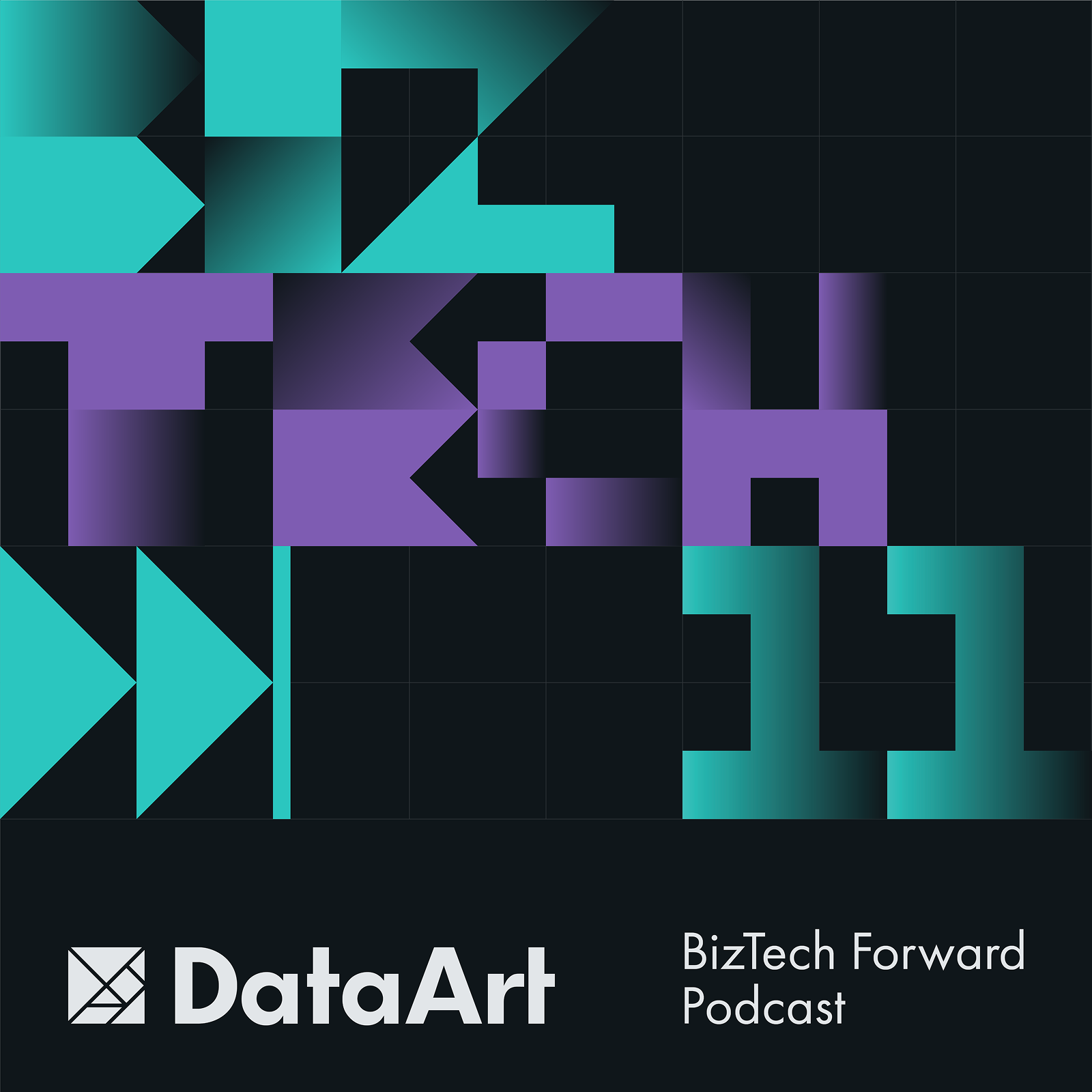
In this episode, Anni sits down with Marcos Mauro to discuss what’s fueling Latin America’s tech boom, how businesses and clients are adapting, and why it’s more than just an emerging market — it’s a global leader in the making.
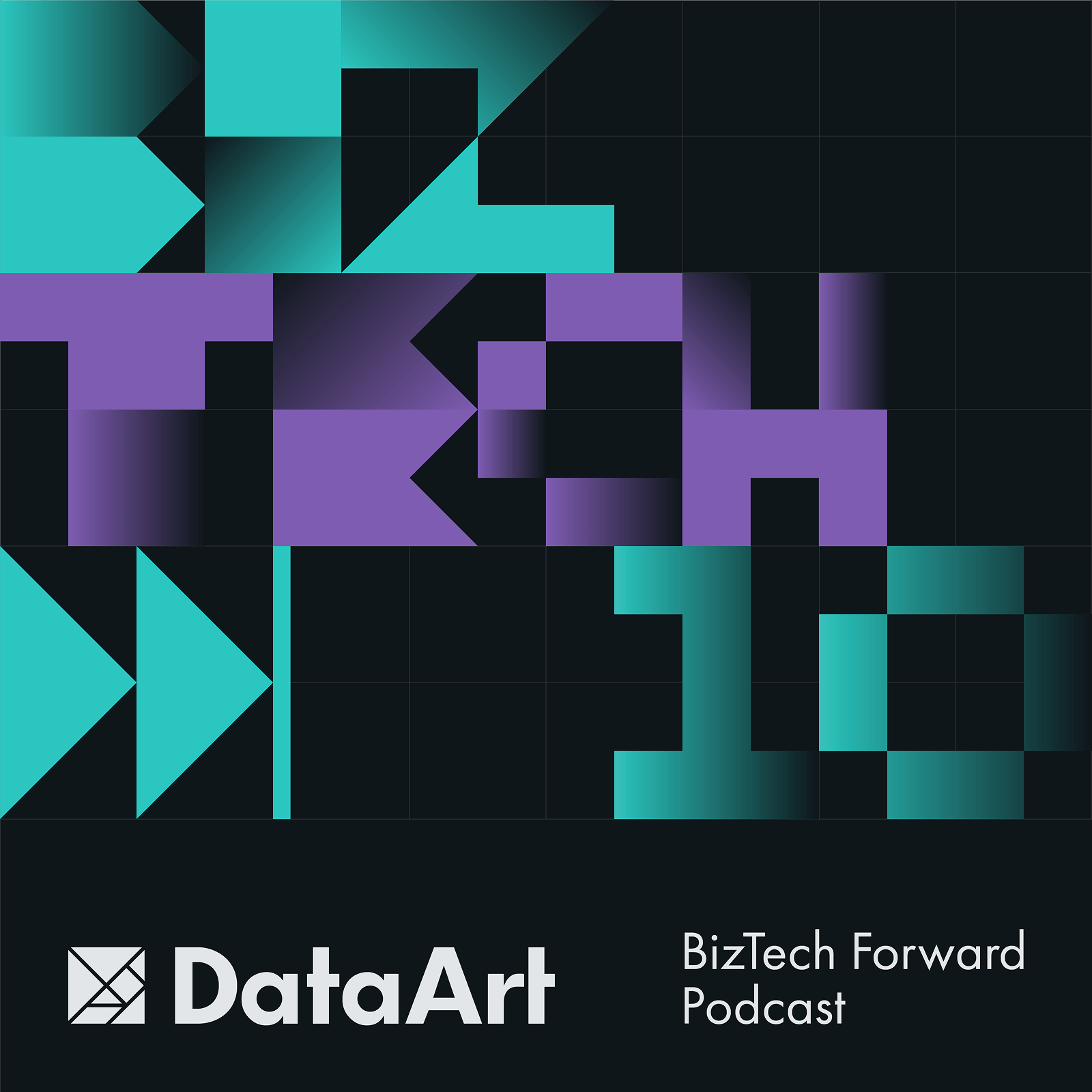
In this episode of BizTech Forward, Anni chats with Maryna Melink, Head of Learning and Development at DataArt, about how companies can create a culture of continuous learning, scale it across thousands of people, and deliver real business value.
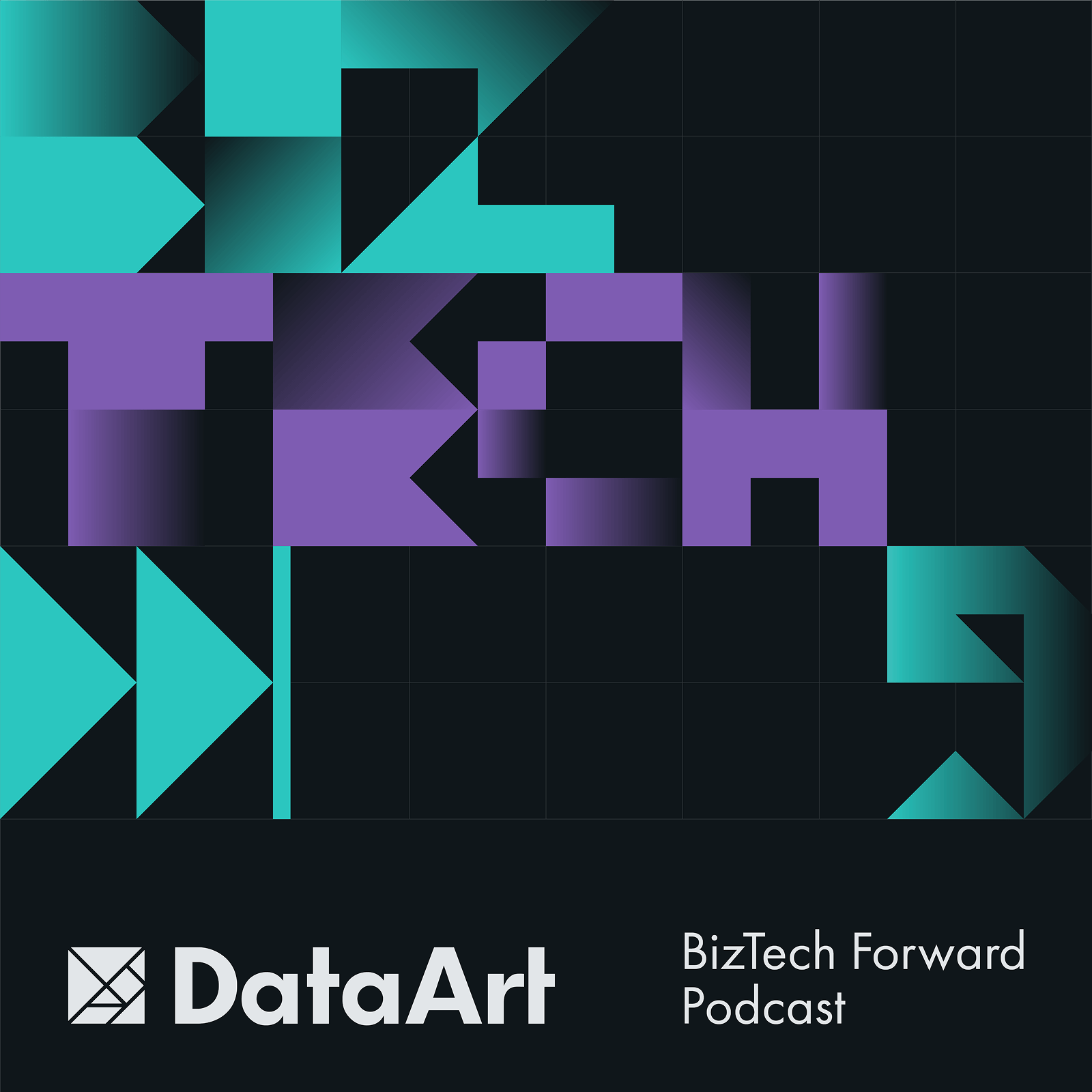
In this episode of BizTech Forward, Anni sits down with Mike Peterson, Advisory CTO / CIO, Mentor, and Coach, who discusses how client expectations from IT vendors have evolved over the past decade, what clients miss from the ‘old days,’ and how vendors can stay ahead in an ever-changing tech landscape.

This is a bonus episode of BizTech Forward: Season One Recap. Host Anni takes you through the eight episodes of the debut season, highlighting some of the best moments and setting the stage for season two!
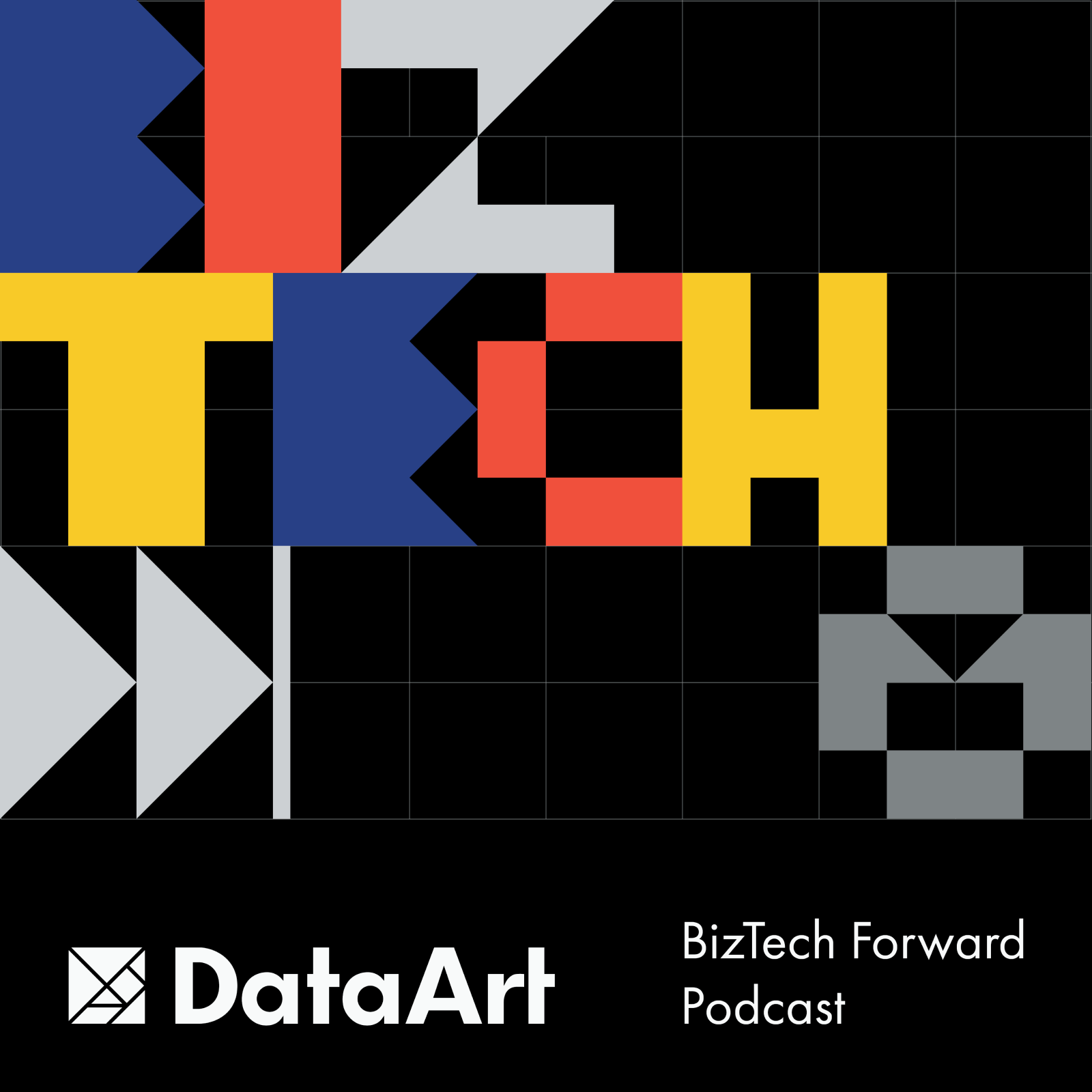
In this episode of BizTech Forward, Anni chats with Scott Rayburn, VP Marketing at DataArt, about how marketing has evolved with the rise of data and technology.
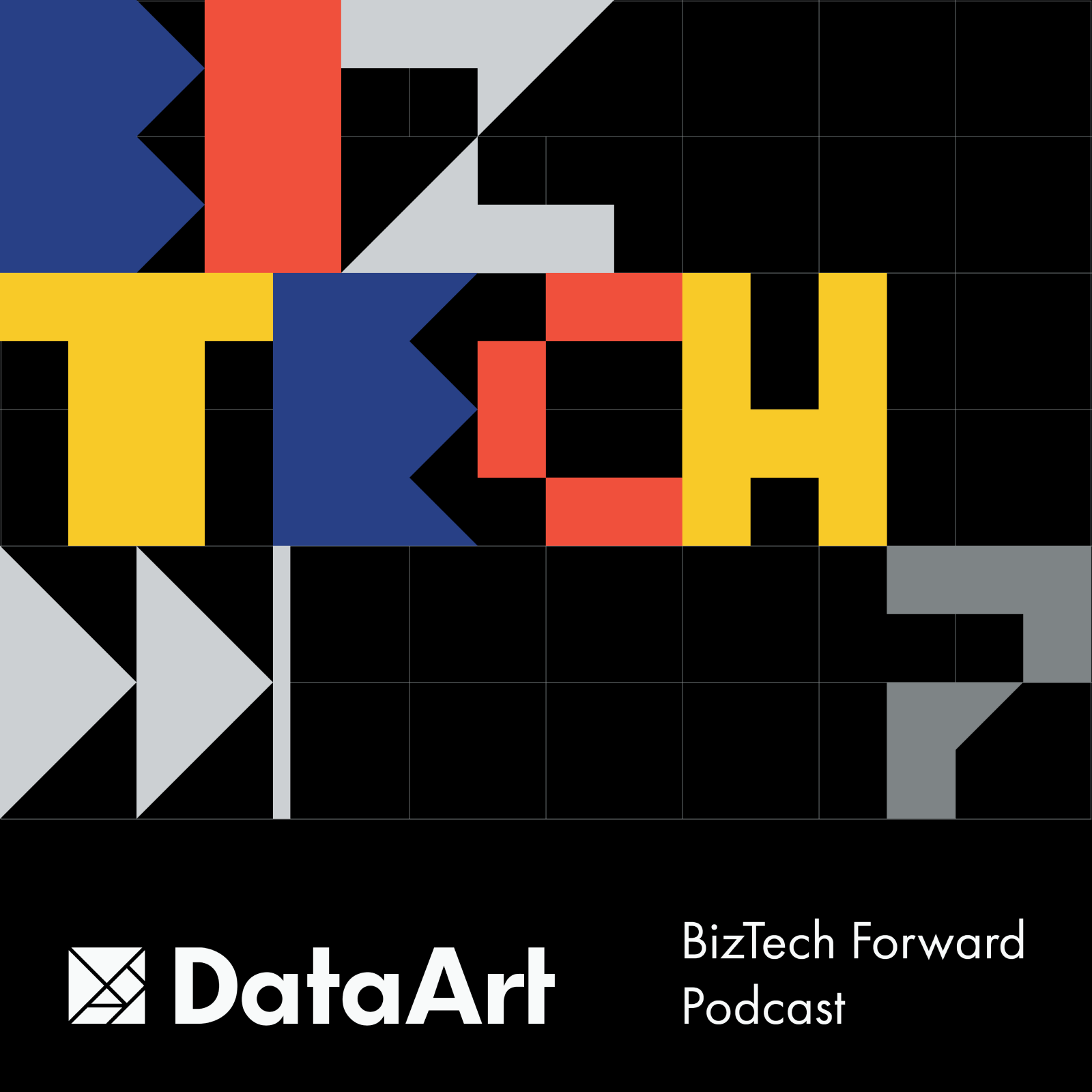
In this episode, Anni chats with Sheetal Kale, Head of DataArt India, about the country’s modern tech views, AI and data, IPO boom, and India’s gravitational pull in global decision-making.
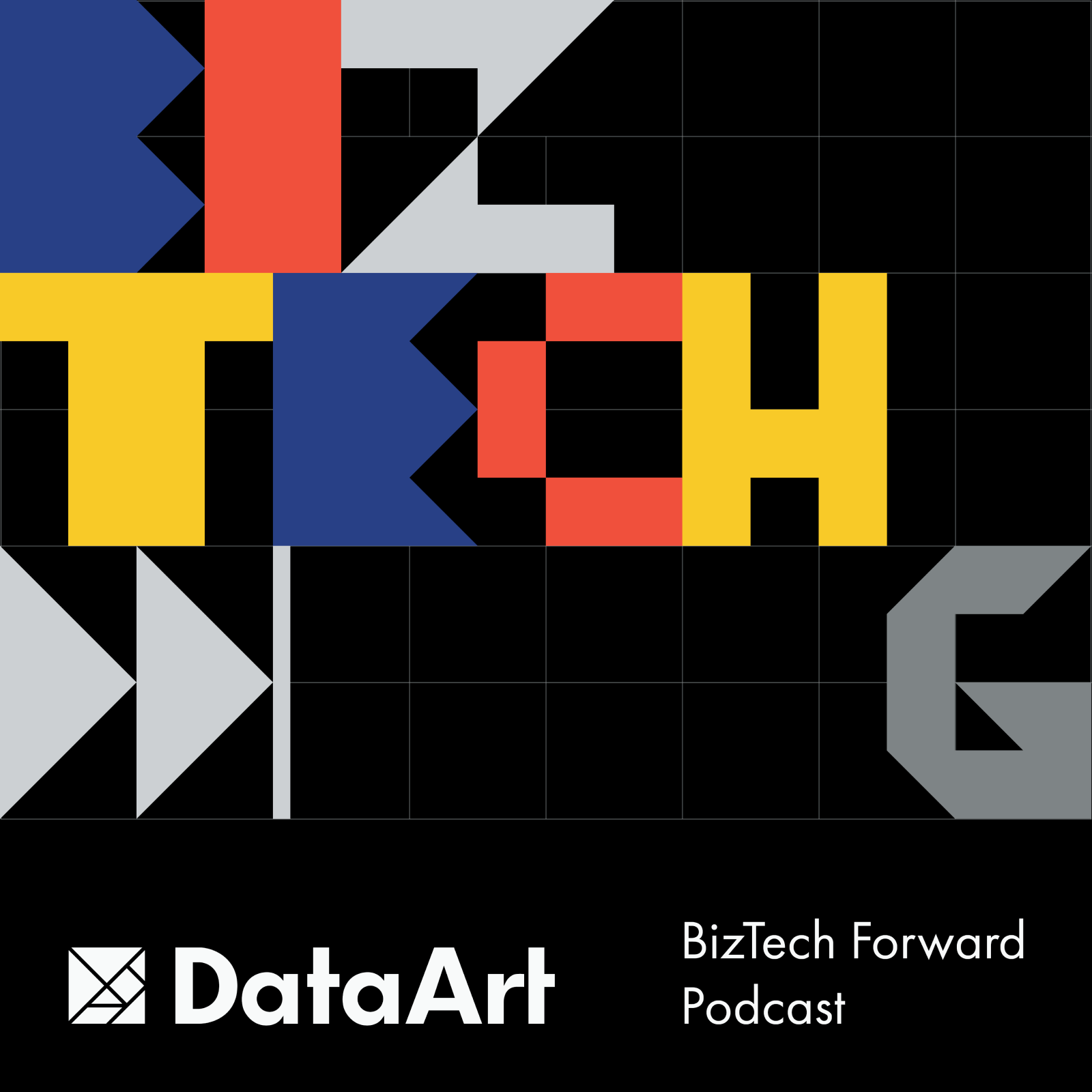
In this episode of BizTech Forward, Anni sits down with Tim McMullen, DataArt's Head of Design Studio, to talk about the evolution of design processes in the world of UX.
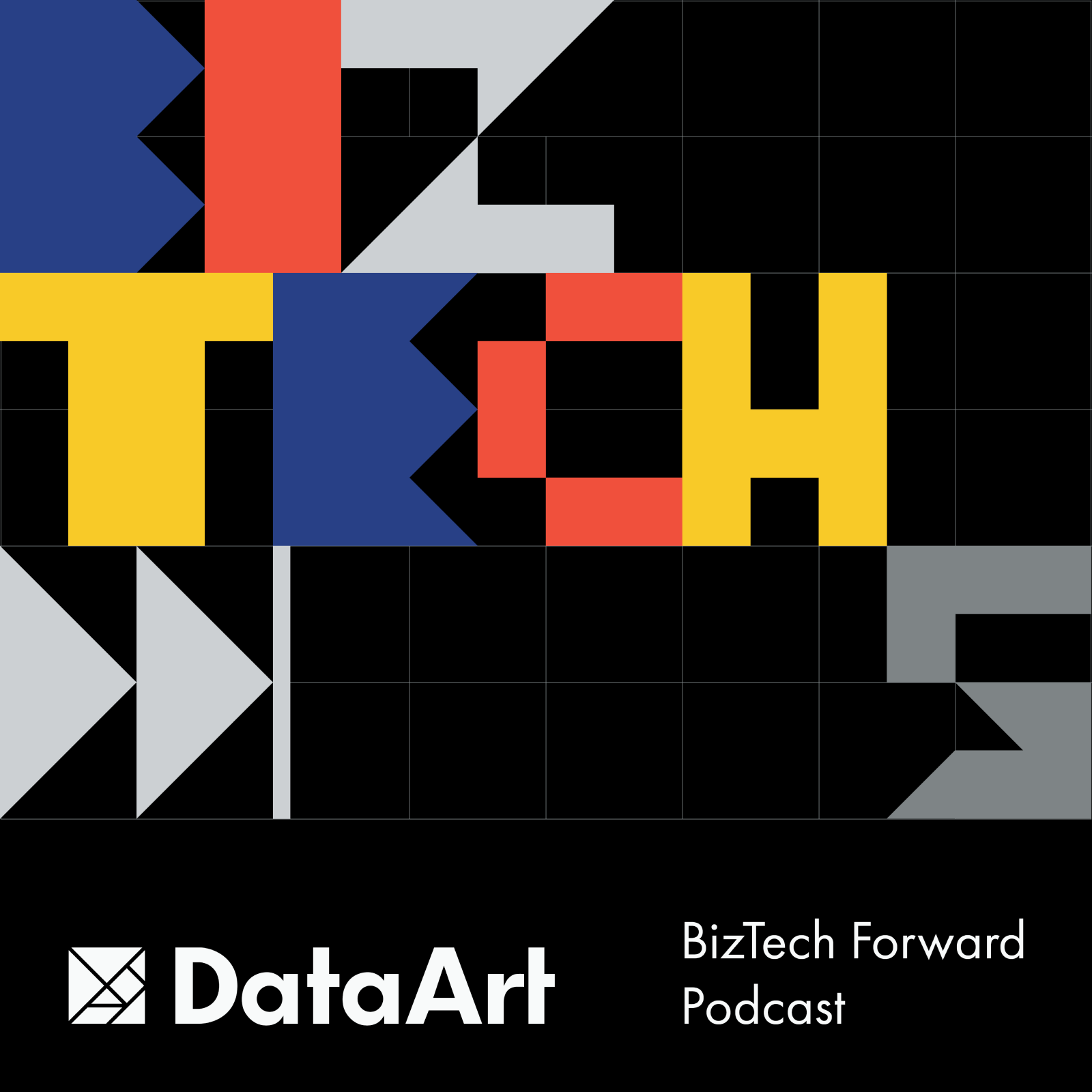
In this episode of BizTech Forward, Anni sits down with Tim McMullen, DataArt's Head of Design Studio, to talk about the evolution of design processes in the world of UX.
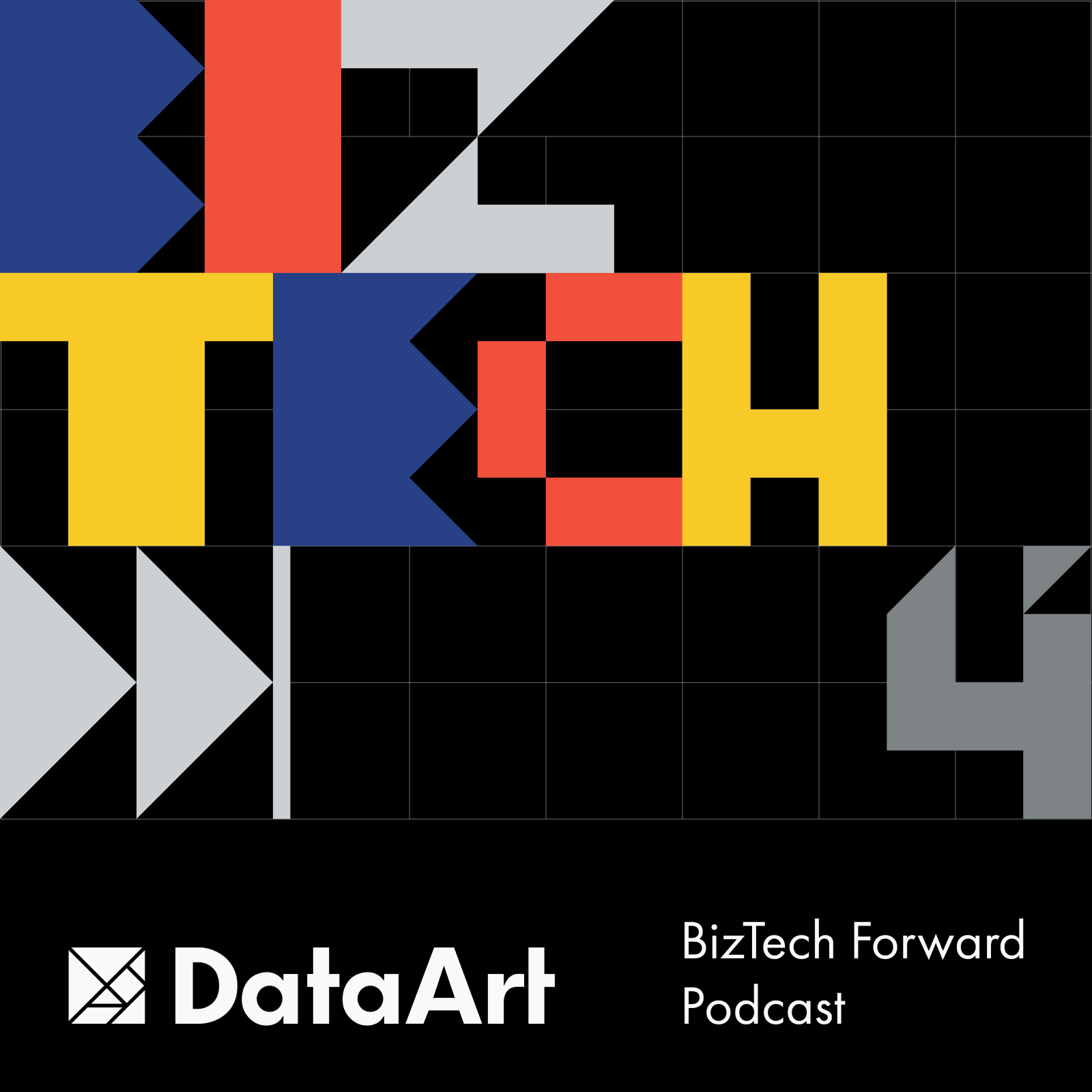
In this episode of BizTech Forward, we chat with Yuri Gubin, Chief Innovation Officer at DataArt, about why data quality is critical for AI success.

In this episode, we chat with Anna Velykoivanenko, Global Employer Branding Director at DataArt, about the perfect blend of technical know-how and human-centric skills.
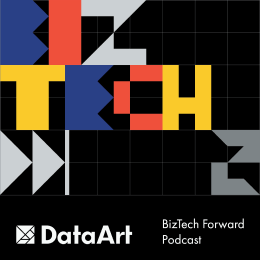
In this episode of BizTech Forward, Anni from DataArt’s Media Relations team chats with Alexei Miller, Managing Director at DataArt, about how businesses can truly measure the value of their IT investments.
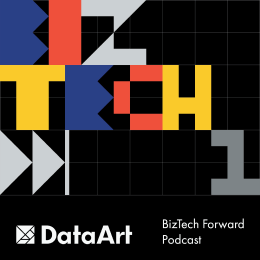
Join Anni Tabagua as we kick off our very first episode with a fascinating topic: AI in Automotive. Our guest is Dmitry Bagrov, the Managing Director of DataArt UK!
We Want to Hear From You!
Reach out to us with any comments, feedback, and questions by filling out the form.

Thank you for contacting us!
We will be in touch shortly to continue the conversation.








